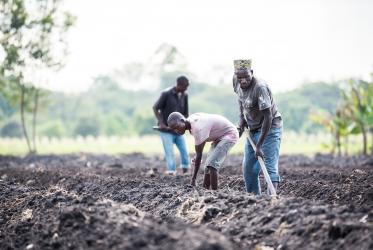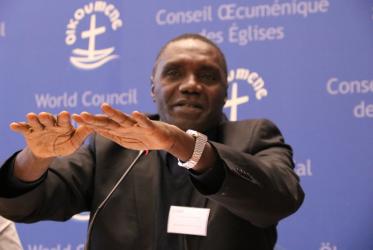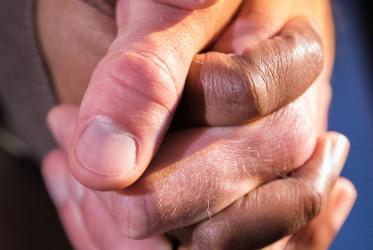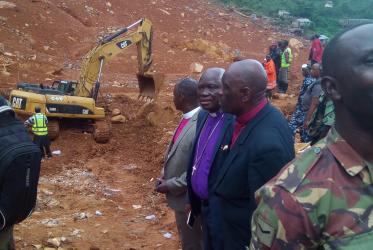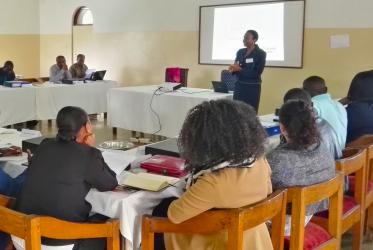Displaying 1 - 20 of 39
Agreement works toward food security in South Sudan
23 February 2019
Dr Cecile De Sweemer, the doer of God
30 November 2018
Worrying food shortages compel faith action
19 October 2018
“Good healthcare a right, not a privilege,” says WCC-EAA
11 October 2017
African youth takes stand at first ever WCC Eco-School
03 August 2017




